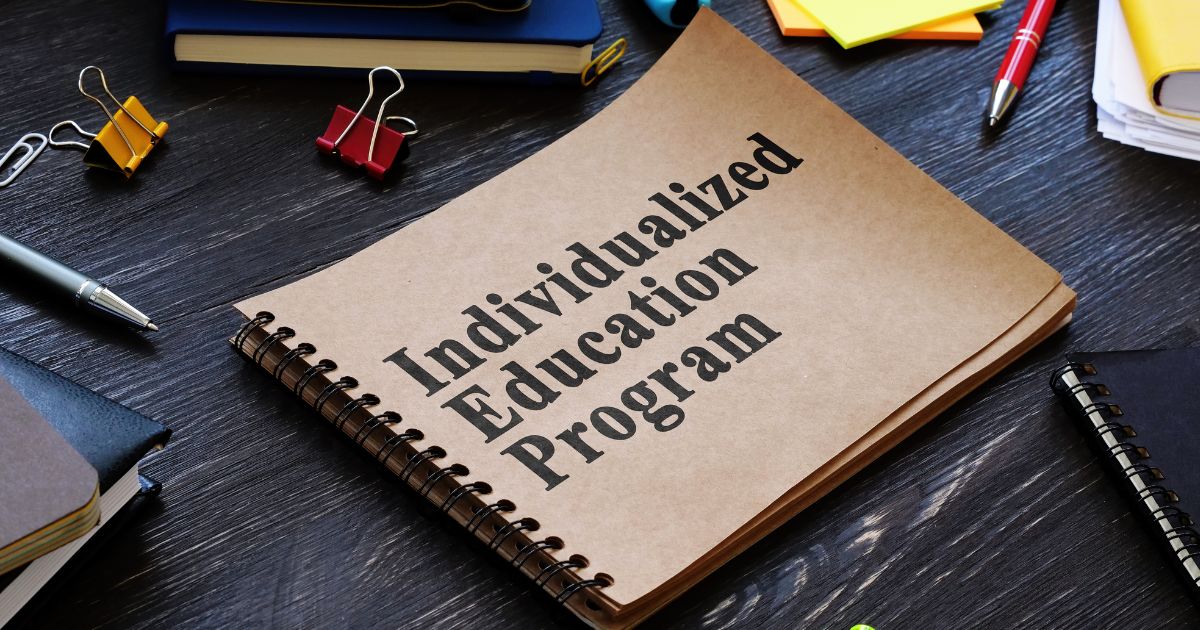What Can I Do if My Child’s School Isn’t Following Their IEP?
The Individuals with Disabilities Education Act (IDEA) requires your child’s school to provide the services, supports, and accommodations listed in their Individualized Education Plan (IEP). Lack of resources, teacher shortages, and reduced funding are not valid excuses to deny your child services.
If your child’s school is failing to comply with your child’s IEP, document your concerns in writing. First, you should send a letter or email to your child’s teacher and IEP director to resolve and discuss your concerns with the school before proceeding to more formal due process procedures. Be specific, give examples, and request changes to your child’s IEP.
I also recommend contacting your state’s Parent Training and Information Center. The Parent Center can help you discuss your concerns with parents who have been in your shoes before you proceed with more formal dispute resolution options. You can also hire an education advocate to help you with the process. I recommend researching to find an experienced advocate. If, after taking these steps, your child’s school continues to fail to follow your child’s IEP, you have several options.
What Type of Violation is It?
The IDEA provides procedural and substantive protections. Procedural violations happen when your child’s school fails to comply with an IDEA’s procedure, process, or rule. Procedural violations can also occur when your child’s school fails to provide special education, services, or placement listed in your child’s IEP. Substantive violations happen when your child’s IEP doesn’t include the required content, is not implemented correctly, or your child’s school fails to place your child in the least restrictive environment. In addition, the IDEA requires each state to implement and maintain procedural safeguards related to mediation, written state complaints, and due process complaints.
Procedural Violations
Procedural violations happen when your child’s school fails to comply with an IDEA’s procedure, process, or rule that the IDEA requires. Common procedural errors include but aren’t limited to the following:
- Fails to provide special education services, support, or placement
- Predetermines a student’s placement or services
- Fails to provide prior written notice to invite you to IEP meetings
- Makes placement decisions without your parental input
- Fails to ensure parent’s meaningful involvement
- Predetermines services and placement
- Makes an improper IEP membership
- Fails to ensure a continuum of alternative placements
- Determines placement before making programming decisions
- Fails to address transition needs and services
- Fails to implement the IEP as written
Substantive Violations
Substantive violations happen when your child’s school fails to provide your child with a free and appropriate public education (FAPE). Common substantive errors include but aren’t limited to the following:
- Fails to include you in the IEP development process
- Fails to provide you with prior written notice of changes to the IEP
- Fails to comply with time limits
- Fails to conduct a complete and individualized evaluation of your child
- Fails to provide an IEP that is sufficient to provide your child with a FAPE
- Fails to offer your child individualized instruction
- Fails to provide your child education support necessary as listed in their IEP
- Places your child in a more restrictive environment than is needed
- Fails to conduct a comprehensive, individualized, and relevant assessment
- Fails to thoroughly evaluate the current performance of the child to determine present levels of academic achievement and functional performance (PLAAFP) statements
- Fails to write ambitious measurable annual goals
- Fails to address all of the student’s needs in the PLAAFP
- Fails to write challenging and measurable annual IEP goals
- Fails to link assessment, goals, and programming
- Fails to provide relevant and meaningful special education and services
- Fails to collect data to monitor student progress and make instructional changes when needed
- Places students for reasons unrelated to their individual needs
- Fails to adhere to the continuum of alternative placements
- Fails to monitor student’s progress
- Fails to implement the IEP as written
Mediation
Mediation is voluntary for both parties. It is a less adversarial process for you and your child’s school to attempt to resolve your complaint with the assistance of a trained and impartial mediator. The school district pays for mediation at no cost to you or your child’s school. You can request and leave mediation at any time. The mediator’s job is to help you work together to resolve disagreements and reach a solution that meets your child’s needs.
Mediation should occur within 14 calendar days. You can request mediation even if you’ve requested a due processing hearing. In this case, the mediator must complete the mediation within the due process timeline. Both parties must agree to extend the due process hearing timeline.
The mediator schedules the mediation at a time and place that is convenient to you. Anything said in mediation is confidential and inadmissible as evidence later in a due process hearing or civil court.
If both parties agree at mediation, the mediator will write down the terms for both parties to sign a binding, legally enforceable agreement. If you disagree, any pending requests for a written state complaint or due process hearing proceed after the mediation ends.
Written State Complaint
You can file a written state complaint with your state’s Department of Education. The IDEA requires each state to have state complaint procedures. You can seek advice from your state’s Parent Training and Information Center. You must file a written complaint within one year of the date you knew or should have known the problem. You must include a statement that your child’s school did not follow a requirement of the IDEA. You must explain why you are filing your complaint and how you suggest resolving the issue. You must sign the complaint and include your child’s contact information.
The state agency must issue a written decision no later than 60 calendar days from the date you filed the complaint unless the state agency extends the timeline. The IDEA doesn’t require states to offer an appeal process, but your state may allow you to appeal.
Resolution Session
Your child’s school must hold a resolution meeting within 15 calendar days of receiving your due process complaint. The resolution meeting includes you, a representative of your child’s IEP team who is familiar with your complaint, and a representative of your child’s school who has the authority to make binding decisions on behalf of the school. The purpose is to give you and your child’s school a chance to discuss your complaint and try to reach an agreement before going to the due process hearing. You can waive the resolution session if both parties agree in writing. Resolution meetings are at no cost unless you hire an advocate or attorney. Your child’s school can only include their attorney in the session if an attorney accompanies you. Unlike mediation and due process hearings, discussions held during the resolution session are not confidential.
The hearing officer will dismiss the due process complaint if you reach an agreement during the resolution session. You have three business days after you sign the agreement to cancel if you change your mind. After that, the due process timeline starts if you don’t reach an agreement during the resolution session. The written decision must be issued within 45 calendar days from the end of the resolution period unless a party requests a specific extension of time.
Due Process Complaint Hearing Request
Your final available option is filing a due process complaint hearing request. You should send your request to your child's school and your state's department of education. A due process hearing is the most formal process. You have the burden of proof in a hearing to prove that your complaint is substantiated. You can represent yourself at the hearing or hire an advocate or attorney.
Your child should “stay put” in their current educational placement after you file a due process complaint until the decision is final. You must file your due process complaint within two years of the date you knew or should have known of the problem. The written decision must be issued within 45 calendar days from the end of the 30-day resolution period unless a party requests a specific extension of time. Due process records are confidential. If you decide to appeal, you cannot use the due process record in your state or federal court appeal.
Your written due process hearing request must contain the following:
- Your child's name
- Your child's address
- The name of your child's school they attend
- A description of the nature of the dispute between you and the school including facts that form the basis of your complaint
- A proposed resolution of the solution
Can I Appeal the Decision of a Due Process Hearing?
Either party can appeal if you don’t agree with the findings and decision. You have 90 days to appeal from the date of the hearing officer's decision unless your state law's timeline is different. The decision is final if neither party appeals. Your child’s school must make the hearing decision within a reasonable time as soon as possible. If the school fails to implement the decision, you can file a state complaint and seek court enforcement.
Remember that you are your child’s biggest advocate. Don’t be afraid to contact your child’s school and IEP director if your child’s school isn’t following your child’s IEP. It can feel overwhelming, but you have resources to help you. Keep copies of all of your communications with the school and any outside agency. Your child needs you to be their advocate especially if the school isn’t following their IEP.






